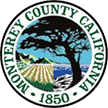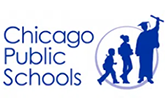CIT offers Sioux interpreters and translators with legal, medical and specialty experience, including criminal and civil matters, employee meetings, engineering, patent cases, labor disputes, immigration and more.
Although based in Los Angeles, CIT offers comprehensive Sioux language services including interpretation, translation and transcription, 24 hours a day, 7 days a week, worldwide. Our interpreters and translators are native speakers who have been screened, certified, have provided credentials, field tested, and kept up to date with developments in both English and the Sioux language through means such as lectures, conferences, and travel. CIT’s Sioux language interpreters and translators possess in depth knowledge of the Sioux language, as well as of the culture and history of the Sioux people, allowing them to provide informed and complete interpretation and translation.
The many dialects of the Sioux languages, also known as Siouan languages, are spoken in the United States and Canada by about 23,000 people. There are a lot of commonalities between Siouan languages, such as Lakota and Dakota. However, there are not many other similarities between other Siouan languages.
There are multiple Siouan languages. Lakota is the more popular of the Siouan languages. It is spoken by about 9,000 people throughout seven tribes known as the Oglala. Lakota is spoken throughout the US in Nebraska, Minnesota, North Dakota, South Dakota, Montana and in Canada as well. Western Dakota, on the other hand, is spoken only by a few hundred people withinthe Yanton and Yanktonai tribes. Eastern Dakota is also spoken by only a few hundred people in four tribes: Santee, Sisseton, Wahpeton and Wahpekute. Lastly is Assiniboine, also known as Nakoda and Stoney. Although Assiniboine is part of the Siouan language family, it is not considered a Sioux language because it does not share commonalities with out Sioux languages. Additionally, those who speak Assiniboine do not have the same political affiliation with the Sioux.
The word “Sioux” is a French term for the Ojibwa word for “treacherous snakes,” the term nadawisou. The native terms for the Sioux people mean “An Alliance of Friends,” including the terms Dakhota (Santee), Nakhota (Yankton) and Lakhota (Teton). These names and terms come with a variety of different spelling options.
There have been several versions of the Sioux alphabet in history, starting with the first Sioux alphabet in 1834. This version was composed by several missionaries: Samuel Pond, Gideon Pond, Stephen Return Riggs and Dr. Thomas S. Williamson. This first Sioux alphabet was composed based on the spelling of the Santee dialect (Dakota). The missionaries used this alphabet to translate biblical texts into a language the Sioux people would understand in hopes of spreading religious knowledge and text.
Consequently, the version of the bible that was translated using the Dakota dialect was quite popular and well known. It was used by the Dakota and Lakota. Not long after, in 1852, another more modern and revised version of the Sioux alphabet was composed. It was the Riggs’ Dakota Grammar. In 1890, he published a Dakota-English dictionary. The revisions to the Sioux alphabet did not stop there and multiple Lakota and Dakota alphabet systems had been created as well.
The Sioux people were nomads and followed the bison they would hunt wherever it would lead them. They lived in teepees, made from long wooden sticks and bison hides. The Sioux relied heavily on the bison they hunted, not only for nutritional needs, but for other survival needs such as shelter and warms as well. Considering that the bison is a dangerous and very large animal, hunting was not easy. However, when the Europeans brought horses with them to America, the Sioux people benefitted and hunting became not only easier, but the Sioux were able to hunt more.


No matter what your needs may be, we can and are ready to assist you now. We have translators and interpreters standing by 24/7.

CIT's interpreter is such a rockstar, and it’s so great to have him as a lead interpreter for our Board meetings. About Our Interpreters 
Thank you for always being able to handle emergency interpreting assignments with ease. About Urgent Requests 
Thank you for always being able to handle emergency interpreting assignments with ease. About Urgent Requests 
Your translation rates are more competitive than other language service providers I used in the past. About Pricing 

Professionalism matters at CIT. We respond to request inside 24 hours.







